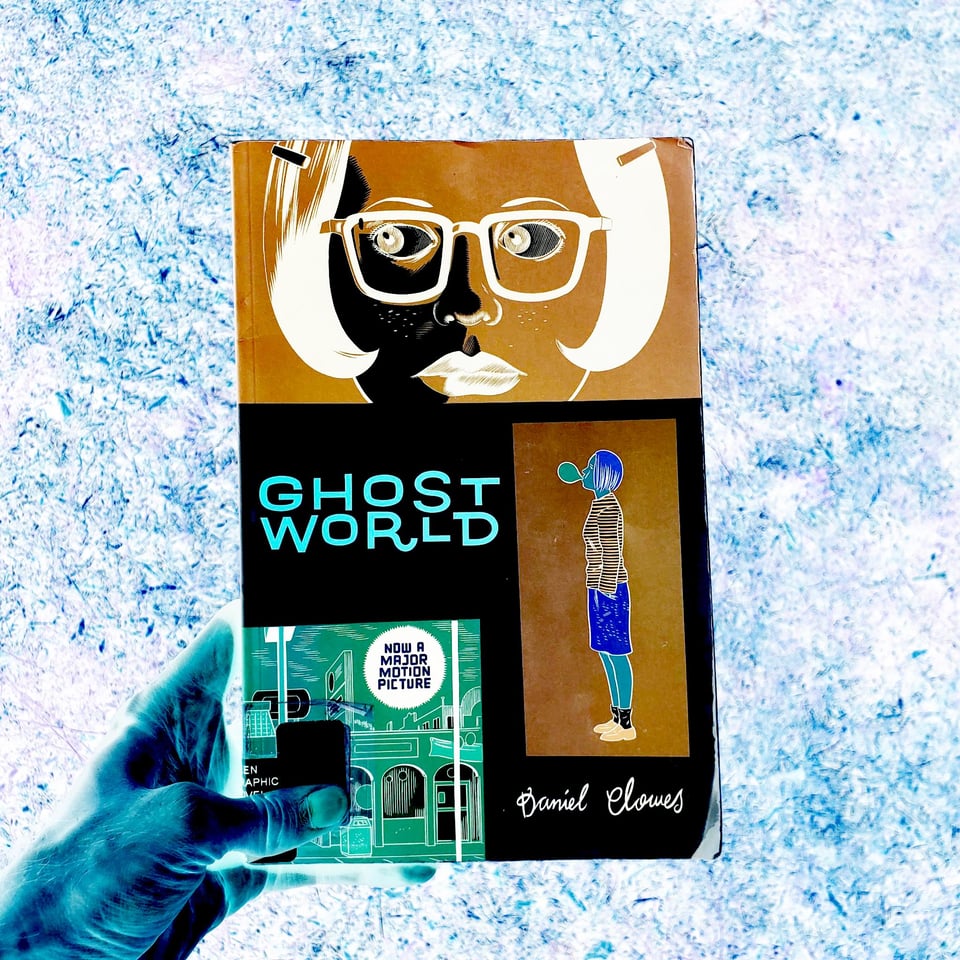Review: Ghost World (1997)

Dan Clowes’s graphic novel Ghost World is like the negative space that lurks behind every coming-of-age story. It dispenses with the normal conventions of narratives about teenagers entering adulthood; things like plot and character arcs are discarded and replaced with an accumulation of scenes, conversations, and images, many of which are absurd and alienating.
The story (to the extent that there is one) follows Enid and Becky, two girls whose friendship is grounded on their shared disdain for the vacuity of the world around them. They’re simultaneously cynical and vulnerable: They are dismissive of people who are earnest about politics, like their friend Josh. But both of them desire Josh, in part because he seems “good” and pure in a way they don’t believe themselves capable of.
The girls are also probably in love with each other, yet their friendship is actually a barrier to deeper intimacy. Their relationship is threaded through with so much irony and disdain that they seem unable to talk to each other about genuine emotions. Everything, for them, is a deflection or a strike back against an empty world — a ghost world, if you will — that contains nothing but disappointment.

It’s a very 1990s story of alienation. It’s the end of history, consumer capitalism is triumphant, and politics doesn’t matter anymore. What’s left behind is just unbearable sameness and emptiness. Ghost World pays a lot of attention to privatized consumer spaces, like diners with fake ‘50s aesthetics and supermarkets, as well as fake, manufactured images; Becky and Enid spend a lot of time mocking celebrities on TV for their ridiculous affectations.
In the end, Becky is able to adapt to this decrepit world — she gets a job, starts dating Josh — and Enid isn’t: She boards a bus and leaves Becky behind. (There are visual hints of this contrast throughout. Enid constantly changes her appearance, sporting a new hairstyle and a new pair of glasses in every chapter, whereas Becky changes only once, cutting her hair in the final few pages.)
Neither girl grows up, really; it’s more like they’re evicted from the adolescent world they constructed together — as we all are eventually.
Follow my bookstagram: @panthercitybooks
